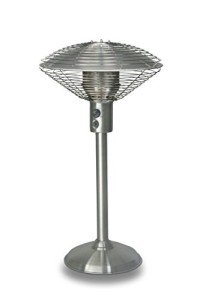High-Quality Heaters Strategies From The Top In The Industry

High-Quality Heaters: A Comprehensive Guide to Choosing the very best Heating Solutions
Heating is a vital aspect of maintaining a comfy environment in homes, workplaces, and various other settings. As the demand for efficient heating solutions grows, numerous consumers find themselves browsing a myriad of options readily available in the market. This post intends to provide a useful guide on high-quality heaters, exploring various types, their benefits, essential features to search for, and often asked concerns to help customers make notified decisions.
Types of High-Quality Heaters
There are numerous heating approaches and innovations available today. Below are a few of the most common types of high-quality heaters:
| Heater Type | Description | Pros | Cons |
|---|---|---|---|
| Central Heating | A system that supplies heat through ducts or pipelines. | Even heat circulation; energy efficient. | High setup expense; space required. |
| Electric Heaters | Portable units that produce heat utilizing electrical energy. | Easy to use; portable; low in advance expense. | Higher operational expenses; might not heat up large locations. |
| Gas Heaters | Use natural gas or propane to supply heat. | Cost-efficient; powerful heating. | Needs gas lines; security precautions necessary. |
| Infrared Heaters | Emit infrared radiation to directly warm objects. | Fast heating; energy-efficient. | Minimal area coverage; may need reflective surfaces. |
| Heat Pumps | Move heat from one location to another for heating purposes. | Energy efficient; dual performance (heating & cooling). | High preliminary expense; performance drops in very cold weather. |
| Wood Stoves | Burn wood logs to heat a designated location. | Eco-friendly; visual appeal. | Requires wood supply; can be ineffective if not used correctly. |
Understanding the Features of High-Quality Heaters
When choosing a heater, numerous essential functions should influence your decision-making procedure. Here are a few of the crucial elements to think about:
- Energy Efficiency: Look for heaters with high Energy Efficiency Ratios (EER) or Annual Fuel Utilization Efficiency (AFUE). These rankings symbolize lower energy usage for the quantity of heat produced.
- Heating Capacity: The heating capability should represent the size of the location being warmed. Measure the space (in square feet) to figure out the suitable BTU (British Thermal Units) ranking required for optimum heating.
- Security Features: High-quality heaters need to have decisive safety functions such as tip-over defense, get too hot shut-off mechanisms, and cool-to-touch outsides, especially for electrical and ceramic heaters.
- Noise Levels: Consider the sound produced by the heater throughout operation. For domestic applications, quieter options like infrared or electric heaters may be preferred.
- Mobility: If the heater will need to be moved in between spaces, consider its weight and whether it features built-in handles or wheels.
- Maintenance Requirements: Different heaters have varying maintenance requirements. For example, gas heaters require regular evaluations, while electric heaters normally need less upkeep.
- Cost: Factor in both the preliminary purchase cost and continuous operational expenses. In some cases, a greater upfront investment in a more efficient heater can yield better cost savings in time.
Benefits of Investing in High-Quality Heaters
Buying a high-quality heating option offers numerous benefits, including:
- Improved Comfort: High-quality heaters supply consistent and reliable warmth, enhancing indoor convenience during cooler months.
- Increased Energy Savings: Efficient heaters decrease energy consumption and subsequently lower utility bills, making them more economical with time.
- Lower Carbon Footprint: Many modern heating solutions are developed with energy efficiency in mind, adding to decreased greenhouse gas emissions.
- Boosted Safety: High-quality heaters featured sophisticated security features to reduce risks related to home heating, ensuring a protected environment.
- Long-Term Durability: Investing in a reliable brand frequently equates to greater reliability and a longer lifespan for the heater.
Often Asked Questions (FAQs)
1. What is the most energy-efficient type of heater?
- Heat pumps are typically considered the most energy-efficient choice because they move heat rather than generate it.
2. Can I utilize electrical heaters as my main heat source?
- Yes, but it depends upon the electric heater's capacity and the size of the location you require to heat. For larger areas, main heating may still be the most efficient service.
3. How do I determine the BTUs required for my specific room?
- Measure the square footage of the room and seek advice from BTU calculators available online, which take into account factors such as insulation, windows, and ceiling heights.
4. Are gas heaters safe to use indoors?
- Yes, but they need to be appropriately vented to prevent the accumulation of damaging gases. Always follow Buy Outdoor Heaters and safety standards.
5. How frequently should I have my heater serviced?
- Normally, it's advisable to have your heater serviced at least when a year to ensure ideal performance and safety.
Picking a high-quality heater is an essential decision that impacts not only comfort but also energy effectiveness and safety. By understanding the numerous kinds of heaters, their particular advantages, key functions, and upkeep requirements, consumers can browse the complexities of the heating market more effectively. Whether it's purchasing energy-efficient models or making sure security through appropriate installation, informed options lead to better heating solutions, eventually enhancing the lifestyle in living spaces.

